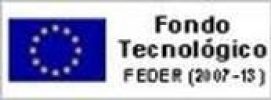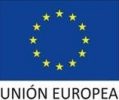Some of the projects developed by ASM in R&D have public support and co-financing. Among them, the following are worth mentioning:
Smartz4Can:

The Smartz4Can project aims to revolutionize the fish and seafood canning industry by enhancing efficiency, traceability, and sustainability through the implementation of a cutting-edge 4.0 technology platform.
This platform focuses on smart data management to reduce production times, improve product quality, and lower water and energy consumption. Utilizing the proven MES-MOM asmCore platform, Smartz4Can will undergo vertical parameterization tailored specifically for the canning sector, covering all aspects of manufacturing processes such as cleaning, cooking, can closing, and sterilization. Additionally, it will adapt general functionalities like warehouse management, quality control, and energy consumption to meet the specific needs of canning SMEs.
Necessity and Challenges:
The fish and seafood canning industry faces significant challenges related to traceability, food safety, efficiency, and sustainability. Given that this industry performs numerous transformations within the food chain, implementing systems that ensure these aspects without compromising competitiveness is crucial. Retailers, the primary clients, increasingly demand digital solutions that guarantee traceability and quality control while optimizing costs. For industry partners, maintaining competitiveness sustainably by reducing costs and ensuring superior quality and safety is vital, especially since SMEs in the fish food sector face the same stringent requirements as larger enterprises but with far fewer financial resources. The Smartz4Can project provides European food SMEs with a production management system offering functionalities comparable to those of large industries, thereby safeguarding their competitiveness and future viability.
Expected Benefits:
The Smartz4Can project is designed to deliver extensive benefits across the fish and seafood canning industry, promoting a more sustainable and efficient operational model.
Food Safety: Enhanced by digital traceability and quality control from raw materials to finished cans.
Competitiveness: Improved through advanced production management, efficiency KPIs (OEE), and labor management.
Sustainability: Monitored through water and energy consumption metrics, contributing to reduced environmental impact.
Real-Time Management: Facilitated by real-time information and KPI-based manufacturing management.
The vertical solution is specifically designed for the canned fish and seafood industry but is also extendable to other SME food industries combining batch and discrete manufacturing processes. Industry partners will see increased competitiveness at a sustainable pace, reduced costs, and maintained high standards of safety and quality.
Productivity Improvements:
Expected productivity increase of 10%-20%, depending on process complexity and average lot size.
Estimated reduction in cycle time by 10%-20%.
Significant reduction in food safety risks, with a 60% decrease in non-conformities.
Environmental Impact:
Efficient production control will substantially lower the industry’s environmental footprint through increased productivity and decreased resource consumption.
5%-10% reduction in energy consumption.
15%-20% reduction in water consumption.
15% reduction in emissions.
Smartz4Can sets a new standard in digitalizing and optimizing the fish and seafood canning industry, ensuring long-term sustainability, enhanced competitiveness, and superior product quality.
Award date: 5/15/2024
Duration: 12 months
Partners:
Conservas Lago Paganini y nosotros, ASM SOFT
COPRO - ASM participates in the COPRO project whose kick-off was held on November 23rd and 24th.
Horizon2020 SPIRE project COPRO Kick-off Meeting in Brussels.
Brussels – 40 Representatives from the 17 partners of the CoPro consortium and from the European Commission met for the project kick-off in Brussels on November 23rd and 24th, 2016. In the upcoming 3.5 years, large and small companies, research institutes and universities from eight European countries will jointly work on improving resource and energy efficiency in the process industries by better coordination of production.
The HORIZON 2020 project CoPro – “Improved energy and resource efficiency by better coordination of production in the process industries” which is led by Prof. Sebastian Engell (Department of Biochemical and Chemical Engineering of TU Dortmund), has started on November 1st, 2016.
The aim of the project is to develop methods and tools for better management of industrial plants and chemical parks under dynamically changing market conditions with the goal to save energy and resources and to improve the competitiveness of the European process industries. The CoPro consortium receives funding of 6 million € from the European Commission under the SPIRE public private partnership until the end of April 2020.
The technical developments are motivated by the practical needs of industry and will be demonstrated in five different use cases from various sectors of the European process industries. At the sites of COVESTRO and INEOS in Cologne the coordination of production processes of base chemicals will be improved. At Lenzing, Austria, the leading European manufacturer of cellulose fibers, complex evaporation and recycle networks of their wood-based production process will be optimized. Further use cases come from FRINSA, a Spanish food packaging company, and from Procter & Gamble. Several leading small and medium enterprises will develop new computer tools for process modelling and process management.
The stimulating discussions during the two day meeting provided an excellent start into an ambitious project that will contribute significantly to the sustainability of the process industries in Europe.

MEDRAR - Improvement of wastewater treatment in small villages
START DATE: 11/02/2016. END DATE: 11/30/2018
The general objective of the MEDRAR project is the development and experimental demonstration of an innovative and sustainable wastewater treatment system for small towns through a modular system, which will be adapted to the characteristics of the flow to be treated and to the criteria for discharge or reuse of treated water.
It is applicable to urban wastewater or grey and black water and for small population centers or small urban/industrial agglomerations that have separate networks, as well as for those that do not have such systems.
It is proposed as a more sustainable alternative to the current systems used in small towns, often deficient, inoperative or unfeasible due to the operational costs involved, adapting to the peculiarities and conditions of each nucleus that allow energy self-sufficiency and water reuse, thus reducing the costs of drinking water and wastewater.
Currently, a modular adaptive control and decentralized monitoring system has been implemented with web access from any device and security system through encrypted communication between the Server and the Wastewater Treatment Plants.
Translated with www.DeepL.com/Translator (free version)


ALEGRIA - Algae and Energy for the valorization of wastewater from the Galician agri-food industry.
R&D Project
The objective of the project is to research new technologies for the transformation of industrial effluents into sustainable sources of bioenergy, with the reuse of valuable substances present in the wastewater, with a lower final waste and a quality that allows its reuse. It also seeks to improve the competitiveness of the Galician agri-food sector by reducing its wastewater treatment costs, generating value through by-products, reducing its carbon footprint and improving the energy use of the industry.
This is a cooperative project led by TRAINASA in the line of R&D Projects in National Cooperation of the Center for Technological and Industrial Development (CDTI) with file number ITC-20133118.










SISTOLE - New technologies for accurate information of real environments with emerging localization systems
R&D Project
The objective of the project is to obtain an integrated solution in which, based on an accurate and reliable location system that supports the requirements present in the most critical positioning applications, emerging technologies are developed for the optimization of industrial routes and industrial information systems based on augmented reality, plus the corresponding authoring tools.
This is a cooperative project led by Instalaciones Inabensa S.A. which was approved on 26/06/2012 in the line of R&D Projects in National Cooperation of the Center for Technological and Industrial Development (CDTI) with file number IDI-20120484.












SF4SF - Plant integration of emerging technologies for the detection, elimination and management of food risks
R&D Project
The main objective of the SF4SF project – In-plant integration of emerging technologies for the detection, elimination and management of food risks – is to increase the production efficiency of food processing plants and the food safety of processed products. Our objective was to develop an application to manage and integrate food risks in plant information systems.
All this, through the integration of faster, more sensitive, effective and sustainable emerging technologies for the detection, elimination and management of microbiological and allergen risks in the plant.
This project has been developed with the aid granted by the Center for Industrial Technological Development (CDTI) of the Ministry of Industry, Economy and Competitiveness, and has been co-financed by the European Union (ERDF Funds) through the Smart Growth Operational Program (2014-2020), in the framework of aid for regional cooperation in research and development (ERDF Innterconecta Program).
The SF4SF project involves the participation of a consortium of four companies formed by CLAVO FOOD FACTORY, S.A. (leader of the consortium), ASM Soft, Kemegal and Nanoinmunotech, and with the collaboration/participation of the research organizations ANFACO, University of Vigo and the International Iberian Nanotechnology Laboratory.
The participation of ASM Soft. in the SF4SF project, awarded on 20/11/2015, has been developed between 2015-2018 and has had a budget of 251,857€. The place of execution of the project has been the facilities of ASM Soft (Vigo) and Clavo Congelados (Caldas de Reyes).
As a conclusion of the project, a MES 4.0 platform has been developed that collects all the information from the production plant, integrating productivity data (Metrics, Consumption, Batches, etc.) with Quality Control, Food Risks and with the ERP business management.




 FEDER
FEDER


